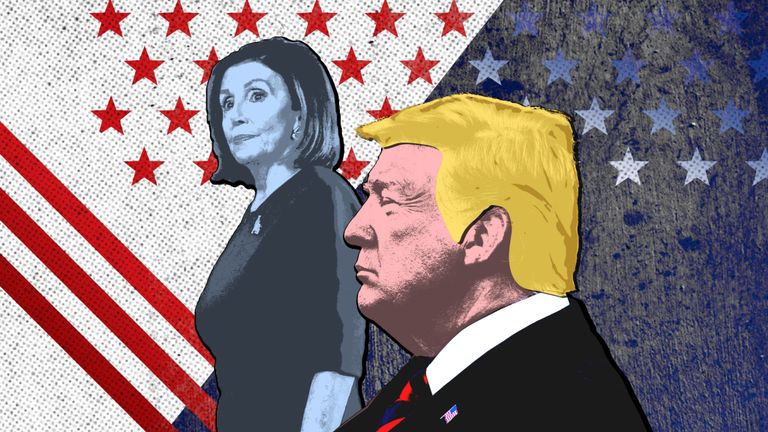Impeachment Divides House as 2020 Looms
The House of Representatives voted along party lines to formalize the ongoing impeachment inquiry into President Trump.
The vote comes after five weeks of closed hearings led by House Intelligence Committee Chairman Adam Schiff.
The resolution, which passed 232 to 196, establishes a set of rules and procedures for the impeachment process which is undefined by the constitution.
President Trump’s most ardent defenders in the House have targeted their criticisms at the process itself, rather than the substance of his call with Ukrainian President Volodymyr Zelensky. “It’s a terribly unfair process,” said Claudia Tenney, R-NY, a former congresswoman from upstate New York.
Tenney said she would have voted no on the resolution, which she believes enables the Democrat’s partisan investigation. “Adam Schiff is conducting an investigation as the investigator, judge, jury and ultimate prosecutor on the whole thing, you can see the transcript.”
In a unified showing of opposition, every House Republican voted against the resolution.
They were joined by only two House Democrats, Collin Peterson, D-Minn., and Jeff Van Drew, D-N.J., who both represent districts President Trump won by a significant margin.
Justin Amash, I-Mich., the House’s sole Independent, voted in favor of the resolution.
House Democrats are trying to keep the focus on President Trump, arguing that the real story is his conduct. “The Republicans were complaining about not having a formal vote,” said Jacob Swartzendruber, a government major and St. Lawrence junior.
Swartzendruber, believes the transcript of the call between President Trump and Ukrainian President Zelensky is possible evidence of a quid pro quo. “I think he will be impeached, but I think he will not be removed from office.”
The Democrats are hoping the vote will silence their Republican colleague’s attacks on the process. “They will come up with new complaints about the process,” said Alan Draper, Professor of Government at St. Lawrence University. “Neither party is gonna give an inch, it’s gonna be a highly partisan affair, and everybody’s playing to their base.”
The long public impeachment hearings will have implications far beyond President Trump’s tenure in the Oval Office.
Prof. Draper believes impeachment will hurt Republicans across the board in 2020.
He cited polls showing Independents and moderate Republicans moving away from Trump. “But the real implication I think, is on Senate races.”
Prof. Draper specified that he thinks Republican senators in Colorado, North Carolina and Maine are most vulnerable to backlash from their vote on impeachment.
“It doesn’t appear that the Democrats are in danger of losing the majority (in the House)” Draper added.
Tenney, who is running for her seat back in 2020, believes the impeachment vote will help her.
She is running in a district President Trump won by 16 pts but is now represented by Anthony Brindisi, D-NY. “Brindisi who’s terrified of voting impeachment, because he knows it’s not there and it’s something this district doesn’t want.”
Many voters are still forming their opinions on the impeachment inquiry. “I haven’t been following the inquiry very closely” said Dylan Gaffney, a government major and St Lawrence junior. “There have been many inquiries prior to this one so I feel like it’s a slight waste of my time to follow this one,” he added.
House Democrats have scheduled two more weeks of private hearings and depositions and have yet to announce the first set of public hearings.
On Monday, they began to release some of the closed-door testimonies they have received thus far. Their plan remains the same, impeach the president before Christmas.



